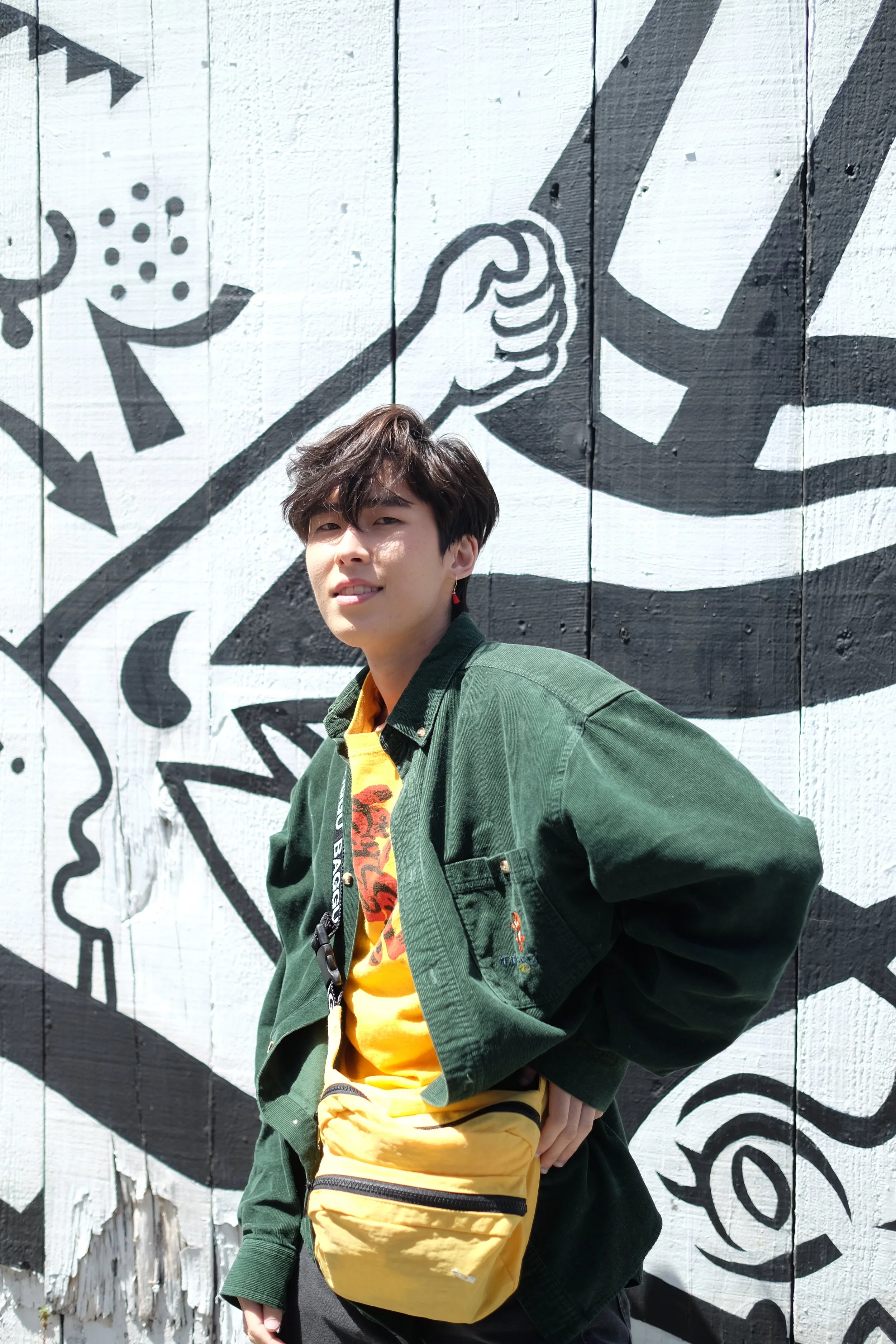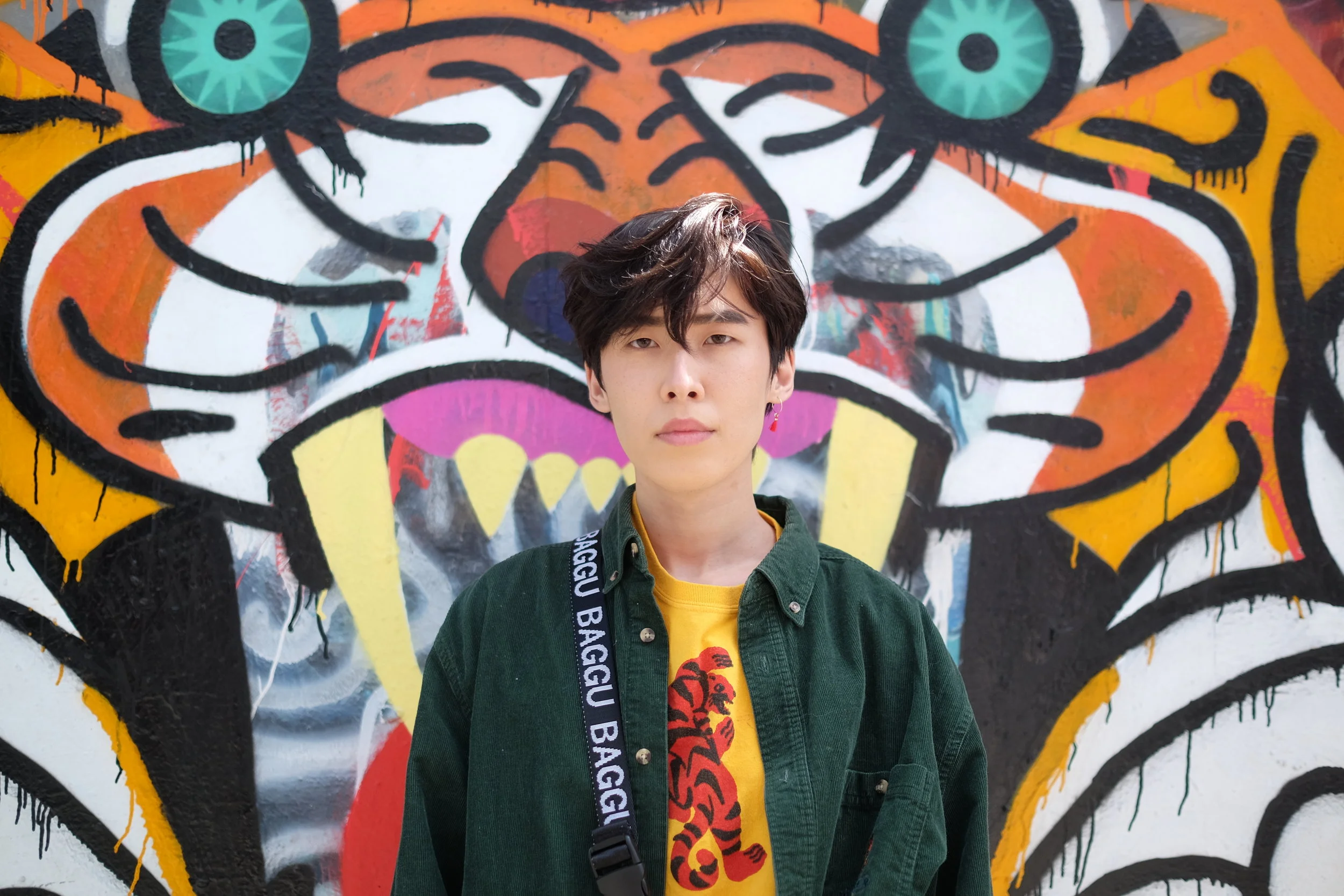Love is ________
Bin Chen
EDITOR'S NOTE: Hello everyone, Andrew and Bin here. As two cisgendered males (we're still learning all the terminology so please bear with us!), we knew we couldn't be the ones to write about LGBTQ or Pride. But - to us Pride is about inviting dialogue, bridging opinions and most importantly, creating a space where everyone feels accepted and heard. It’s why we wanted to approach this year not through our own voice, but rather through the voice of our employees. We’ve interviewed a few of our bobaristas on their feelings around Pride, what could improve, and most importantly, what love means to them.
We’ll start with this: What’s currently wrong with “Pride”? What do you feel is missing?
Millie Khou (MK): What’s missing is the information people don’t know, the history, and the reason why Pride month exists. Pride meant celebrating who you are, being proud, and gathering with a community that one day, won’t have to come out of a closet anymore. A lot of straight/cis people miss the point: it isn’t just a time to get intoxicated or naked. Don’t celebrate yourself, celebrate your LGBTQ friends and be the ally they need. Don’t treat Pride like Valentine’s Day for your friends; care about and love them every day.
Andy Sagal (AS): I think the two major components that bother me are consumerism and ironically, exclusivity. Companies are putting their nose in “Pride” to make money, or to pretend that they care when they really don’t. Also, you need to pay to enter some Pride parades. It shouldn’t cost money. It’s not a festival. If cities or companies wanted to donate the profits that would be fine - but a mandatory fee is destructive. It’s not like all members of the LGBTQ community have money. Finally, it’s important that there is a month - but for people outside of the LGBTQ community, it limits their scope. People only use this month to party, and once the months is over, they “move on to something else”. People need to be more conscious of it year-round.
Wen Neale (WN): While I never attended “Pride”, from observing others first-hand experiences it seems pride has become a giant corporative festival. There’s no acknowledgment of the monumental achievements made by trans women of colour, and it’s more focused on people who aren’t involved in the community wanting to party than realizing why we have pride in the first place.
Griffin Moskowitz (GM): I think that unfortunately, people outside the community are showing up for the wrong reasons. What does it mean to be an ally? If you are not a member of the community, why are you showing up? These are vital questions to unpack within yourself. Pride parades are commercialized, sexualized, capitalized upon, and heavily policed; which is a great irony. The Pride we have today only exists because black trans women and drag queens rioted against police. They were revolutionaries, but our community has glossed over their history in so many ways. We are missing our history.
Lily Jones (LJ): The SF Bay Area has always been the forefront of the battle for LGBTQ rights and I'm disappointed that big companies such as Target still sell 'Love Is Love' merchandise when for at least this metro area, the real conversation has moved onward. Same-sex marriage is legal and anyone visiting San Francisco probably knows it as some equivalent as the gay capital of the United States. Now that same-sex couples can marry and be further recognized as legitimate by our mainstream society, Pride events need to turn the limelight to trans, gender non-conforming, and nonbinary gender issues. Additionally, this previous focus on romantic and sexual love, although easy to sell, effectively tells queer people the same message that Hollywood's been peddling for eons: happiness is only found with a romantic partner.
I love the idea of a Pride event, but in my opinion if you've been to the Sunday SF parade once, that's enough. I've found smaller, less party-oriented events that have been just as fun (shoutout to Concord Pride and the Rainbow Community Center) and focused more on community than getting drunk and selling overpriced festival food.
What makes you proud to be who you are?
MK: I wasn’t proud of myself for a long time because I didn’t know how to find others that were like me. I’m proud of myself because I found a community to confide in and reasons not to feel scared anymore. Being attracted to people not based on their gender identity was confusing to understand, but as I learned to understand what that meant to me and to others, I was proud to find the missing piece of me I couldn’t define for so long.
WN: I’m proud to be who I am because I want to show people that despite all the odds against you, you can find happiness for being you.
GM: What makes me most proud is how much my appearance has changed in the last few years. In the near 100 degree heat of our Union Square store, I wore a full face of makeup to work every day when I first started, sometimes hastily applying it in the bathroom before my shift if I was running late. Wearing makeup is a fun form of art and expression, but being afraid to face the world without it was like being a prisoner behind a mask I was losing control over. I was performing an elevated appearance I thought the world expected of me, but with some work, I’ve become more comfortable in my skin.
AS: Even from a young age, not been afraid of having my own thoughts and saying them in my own manner. It’s giving importance to who I am and my thoughts. How genuine is everything outside of you, if you are not genuine within yourself, first. Without self-appreciation and/or self-affirmation, nothing else can hold meaning. So I am most proud of being me.
Why is it important to love yourself?
GM: Self-love is complex: it’s not linear or binary, but a process of constant evolution. I’ve found at times when self-love has been challenging and I don’t love myself, I’m a worse person. A worse friend, a worse employee, and it’s a cyclical trap that’s too easy to fall into. Who are you? What are you ashamed of? What do you want to change? The times when I practice embracing my insecurities are my happiest. Be honest and kind to yourself, the world will thank you.
MK: Before anyone tells you that they're accepting of you, you're never going to believe a word they say until you see yourself as a whole. Every piece and experience makes you the person you are; no one’s appreciation of you will mean more than the way you appreciate yourself.
WN: It’s important to love yourself not just for the sake of yourself, but for the relationships you have as well. My own depiction on ‘loving yourself’ is being confident in the choices you make, knowing your worth to reduce people taking advantage of you, and allowing yourself to fully express emotions that society tends to want you to ‘bottle up’.
AS: It’s important because a lot of times we are the only person who can. If you aren’t able to love yourself, you will most likely seek out validation in ways that are toxic. And if you can’t recognize toxic love (because you don’t have a standard), you’ll be content in toxicity. You will take whatever you can get. You’ll have a loss of worth and you won’t recognize it. You wont know how to say no to situations that arent healthy for you. Self-love is important because it’s your high standard of self-respect.
What does love mean to you?
MK: Love is palpable and once you feel it, it's something you would want for everyone. Love is something that’s not limited to any “type” of person; it’s something that everyone deserves. Love is terribly confusing, but everything makes sense once you feel it.
WN: To me, love means a freedom of expression and an unwavering amount of trust.
How do you feel your community strengthens you?
MK: The moment anyone doesn’t feel alone anymore is a step in the right direction. My community gave me the confidence to be accepting of myself and reinforced the idea in me that there is nothing wrong with me. This community and the Hardcore/Punk scene have been so accepting; learning that every norm I knew before is not meant for everyone made me a stronger person.
WN: Being involved in the art community, there’s many LGBTQ+ members in it. My community has helped me figure out my own identity and sexuality, and provides me never-ending support in my hobbies and work. The consistent support and reassurance has made me develop into a person who isn’t scared to show vulnerability anymore.
LJ: My community strengthens me with its diversity! I fortunately had a great Queer Straight Alliance at my former community college and the regular members all came from many different backgrounds, walks of life, and perspectives which helped us all consider how racism and capitalism affects the queer community. Additionally, my friends do not shy away from speaking up about what's important to them, and I feel that pride is about the absence of fear.
What does family mean to you?
GM: Family can be a sore spot for many queer people. I am very fortunate to have siblings and parents who love me, but they haven’t always been the most openly supportive of my choices. But we get to choose our families, too. For me the word includes, but is never restricted to blood. In my time at Boba Guys, I’ve met a handful of people I love like brothers and sisters (or grandpa and grandma), and I’ll always remember the Union Square store as a place that supported me as I grew up.
What would you tell your younger self?
AS: To never lose independence. I gained that at a very young age - there was no one there to give me what I needed or to teach me how to get it, and if I hadn’t experienced that, I would have grown up in a very different way. I had to get a job at 13 because my parents couldnt buy me clothes. And some people could grow bitter from that, but it made me stronger. So I’d tell myself to never lose that drive.
MK: You’re gonna make it past 16, 18, and 21. You’re going to meet people that encourage you to be better. You’re going to make sense of this and you’re gonna find someone just like you who will love you for longer than you could have imagined. It’s gonna be okay.
WN: I would tell my younger self that my identity won’t get in the way (and should never get in the way) of achieving success and happiness, and that if anything, my identity is what propelled me into improving my work ethic and myself as a person. Also, to not try so hard into fitting into society’s standards on people with the same identity as me, in the end it’s what makes you happy not others.
GM: Although it might sound cliché, I would tell myself everything will be OK! There are countless people just like you, and there is a whole world full of acceptance and love whenever you’re ready to reach for it. Also never download an app called Grindr when it comes out. Or Tinder. Or Jack’d.
Fill in the blank: Love is _________
WN: Love is Freedom
AS: Love is inter-dimensional
MK: Love is tender





